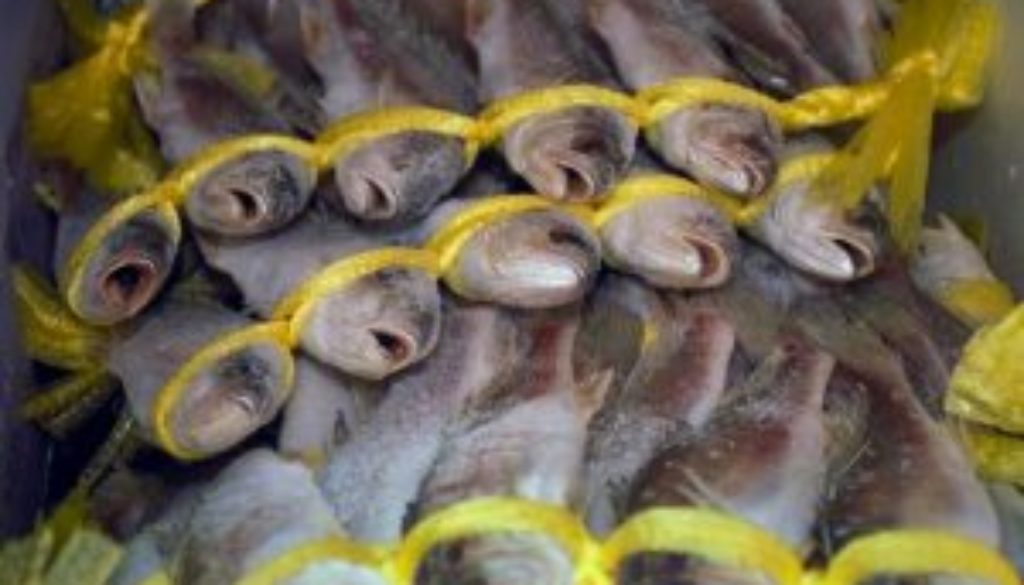Court Upholds Seafood Traceability Rule
By Molly Masterton, Natural Resources Defense Council
If we want healthy oceans, we need to know more about the seafood we eat. A lot more.
That’s why we are celebrating news about the Seafood Import Monitoring Program, also known as the seafood traceability rule. This week, a federal court rejected a challenge to the rule by commercial seafood industry interests.
The National Marine Fisheries Service (NMFS) issued the rule last December. It is a key first step in the U.S. government’s efforts to combat the influx of illegal seafood coming into our borders.
The seafood traceability rule was developed out of recommendations by a multi-agency Task Force in 2014. With this week’s ruling, NMFS has the green light to forge ahead with implementing this critical safeguard.
As you may recall from my earlier blogs, the seafood traceability rule is all about requiring more data disclosure from importers. The purpose is to uncover elusive illegal, unreported, and unregulated (IUU) fishing and seafood fraud practices. IUU fishing is a leading cause of overfishing, marine habitat destruction, and bycatch of ocean wildlife, and it is pushing our oceans to the brink. By creating unfair competition, IUU also impairs the global seafood economy and hurts our law-abiding fishermen at home. This is one reason why the seafood traceability rule has a history of strong bipartisan support from key decision makers and the broader public.
The rule will make the seafood supply chain more traceable by establishing a data reporting procedure for imports of a number of “priority” species— including tuna, Atlantic and Pacific cod, and red snapper. The data will make them traceable from the point of harvest to the point of entry into U.S. commerce. At the border, importers will need to report what kind of fish they are importing, the quantity, and how and where it was caught or farmed. NMFS and U.S. Customs and Border Protection will oversee this process, beginning in January 2018.
By shedding light on illicit activities along seafood supply chains and empowering agencies to take enforcement action, the seafood traceability rule will protect our oceans, along with U.S. and international fishermen who play by the rules.

As I described in an earlier post, the National Fisheries Institute (NFI) and a handful of commercial seafood businesses filed a lawsuit challenging the rule in January. They argued, among other things, that NMFS lacked authority under the Magnuson-Stevens Act, our primary federal fisheries law, to regulate seafood fraud. NRDC, along with Oceana and the Center for Biological Diversity, and with co-counsel from Earthjustice, filed an amicus brief in support of the rule—specifically, supporting NMFS’s authority to issue it under the Magnuson-Stevens Act.
In a thorough, 67-page opinion, the Court drew on an extensive administrative record, technical studies, and legislative history. It concluded that NMFS followed both the procedural and substantive requirements of the law when it adopted the rule. While its discussion on each claim is interesting and robust enough to warrant its own blog post, I will highlight here two key points:
First, the Court recognized the gravity of the problem and the importance of traceability as a means to address it. It acknowledged the “profound” economic and environmental impacts of IUU fishing and seafood fraud, and highlighted how complex supply chains have allowed these problems to persist. Pointing to the work of the IUU Task Force and several independent studies, the Court found ample support to conclude that improving supply chain traceability is critical to deterring these pervasive practices.
Second, the Court made it clear that NMFS has authority to tackle this issue head-on by regulating both IUU fishing and seafood fraud under the Magnuson-Stevens Act. This is crucial because seafood fraud overlaps closely with IUU fishing and is often used to conceal illegal product. In other words, to get at one issue, NMFS must be able to address the other. That’s what the traceability rule seeks to do. The Court recognized this, finding that IUU fishing and seafood fraud are “inextricably intertwined.” The Court considered previous amendments to the law, and determined that Congress had “gradually expanded” NMFS’s authority to address IUU fishing under Magnuson-Stevens. While Magnuson does not explicitly grant authority to regulate seafood fraud, the Court said, such regulations are appropriate when needed to combat IUU fishing, and it was reasonable for NMFS to interpret the law this way. The Court also found plaintiffs’ argument that Food and Drug Administration has exclusive authority to regulate seafood fraud unpersuasive.
The Court’s ruling is a huge win. But our work is not over.
Our next priorities are lifting the administrative stay on shrimp imports—which account for 29% of U.S. imports by value and are known to be at high risk for IUU—and eventually expanding the rule to cover more species.
As the Court stated, the scourge of IUU fishing is a problem of global concern. To protect our oceans and give our fishermen a fair shot, we need strong policies to combat IUU fishing and seafood fraud. This rule will be a real step forward in detecting and thwarting these practices at the border, and we are hopeful that NMFS can now move forward with robust implementation in January.

